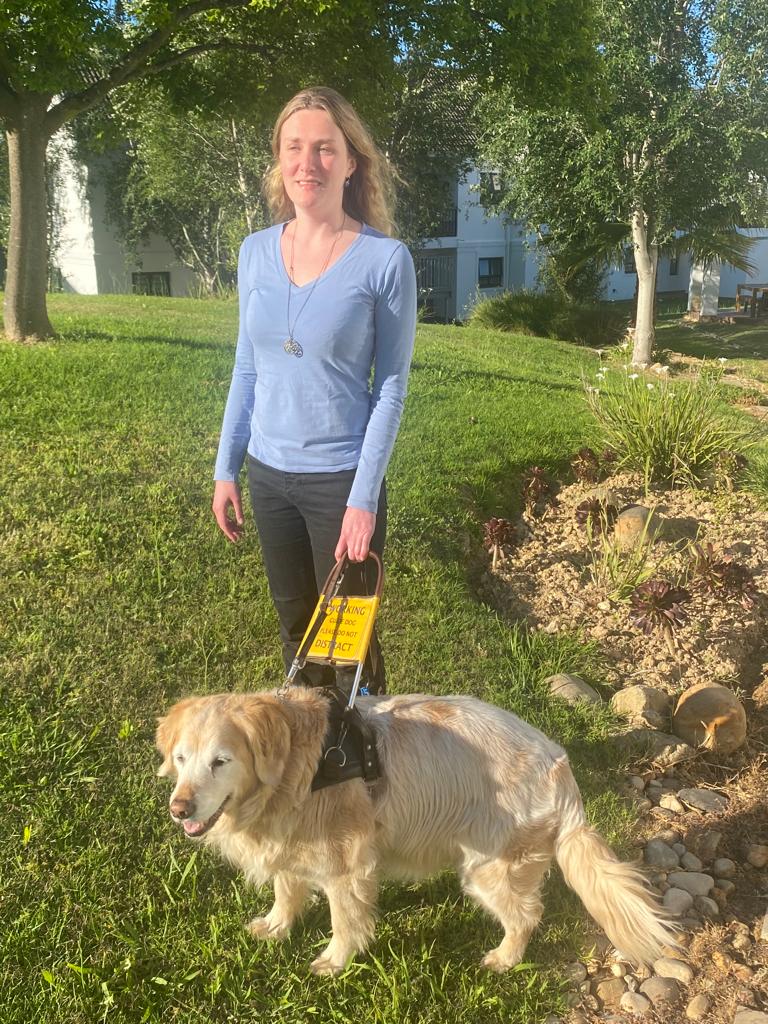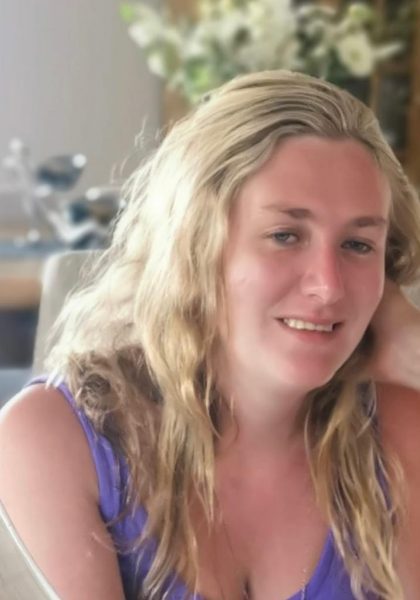Discrimination towards persons with disabilities is a daily occurrence worldwide. However, it is worth noting that developing countries such as my own are still lagging behind the rest of the world when it comes to the implementation of inclusive practices.
Despite the fact that “inclusivity” has become a buzzword in South Africa and elsewhere in the world, the conversations are mostly centred around race and gender and, ironically, disability is often excluded from these conversations. Through this article, I wish to initiate an honest conversation about disability and discrimination by focusing specifically on the discrimination experienced by service dog owners on nearly a daily basis, both in my country and elsewhere.
On Friday 15 October 2021, I was on my way to represent the company I work for at a business event and I used Uber to organize a lift. I was refused by three Uber drivers because I was travelling with my guide dog Teska, causing me to be more than 45 minutes late for the event. This is despite the fact that Uber’s policy states that service dogs must be accommodated in all Uber rides. Furthermore, Section 9 of the Equality Act in South Africa states that no person may unfairly discriminate against any person on the ground of disability, including:
- Denying or removing from any person who has a disability, any supporting or enabling facility necessary for their functioning in society;
- Failing to eliminate obstacles that unfairly limit or restrict persons with disabilities from enjoying equal opportunities; or
- Failing to take steps to reasonably accommodate the needs of such persons.
When this incident occurred, there happened to be no Uber Assists (although I do not require assistance), or even Uber XLs in the area, and I was eventually forced to order a much more expensive Uber Black. When I reported the drivers on the app, I was refunded. However, I felt that more systemic action was required. When I posted the story on Uber’s Facebook page, however, I was met with responses that were very clearly generated by a bot. These responses simply encouraged me over and over to report the individual drivers, and I received no human response even after pointing out that I felt that the issue should be considered of enough importance to warrant human intervention.
As I stated on their page: I do not require a personal apology, as I feel that this would do nothing to resolve the issue. I require Uber to issue a public apology to the disabled community, and to explain what they intend to do to cause meaningful change. One suggestion would be to ensure that there is a specific option on the app to report service dog related incidents, as is the case in many other countries. This would immediately make it more visible to drivers.
Blind and visually impaired persons (to name just one group of disabled people who make use of service dogs and who require these dogs to accompany them everywhere) have regularly experienced discrimination from restaurants, transportation services, and even governmental organizations by being refused entry or service when out and about with their guide dogs. These refusals are related to concerns about the cleanliness of the dogs, concerns about how the dogs will interact with other dogs (in the case of wine farms with dogs on the premises) and concerns about the dogs upsetting or scaring other customers. Sometimes, if entry is granted to restaurants or other establishments, the service dog owner is requested to sit outside, or in an isolated corner. This is a violation of the right to freedom of movement, and to human dignity.
The incident on 15 October was not the first time that Uber refused me service because of my guide dog, and it has happened to numerous other blind Uber customers. It has happened to me again after the occasion mentioned in this article, and I have heard of two other guide dog owners who have been refused access since.
I am of the opinion that reporting individual Uber drivers for refusing service dogs (as one is currently encouraged to do by their customer service) will not do any good. Often, these drivers are people working hard for a living and who may be uninformed. One could argue that they do not properly read the Uber policies, but for many Uber drivers in South Africa and elsewhere, English is not their first language. I believe that it is Uber’s responsibility to properly train their drivers regarding their service dog policy. Uber, as a massive global company, cannot keep shifting the blame onto their drivers, as this has been a problem for years now.
Drivers refuse service dogs for a number of reasons, the most common reason being that the dogs will leave hair in the car which would upset other customers. However, service dog owners keep their animals as clean as possible precisely because they have to travel with them everywhere they go, and take them into public spaces such as restaurants.
Another example of similar discrimination is the time I was refused entry to three restaurants in a row a few years ago, on one of the hottest days of the year. In 2019, yet another coffee shop (where I was supposed to meet a business associate) would not grant me entry, but asked me to sit outside in the rain with my dog.
Incidents such as these are not merely inconvenient, causing service dog owners to be late for important engagements, to be seated in uncomfortable weather conditions, or for meeting venues to be changed, but they leave individuals feeling humiliated, unwelcome and disrespected.
The time has come for South African organizations (whether they be restaurants, stores, or South African branches of multinational corporations) to take responsibility for their policies and the implementation thereof. I would also like to urge South Africans with disabilities to come forward with their stories of discrimination. We have been silent for too long, afraid of disturbing the peace and upsetting the rest of the world, but in our silence, the truth lies hidden. Our experiences and our views are as important as anybody else’s in a society that claims to prize equality, and we should not have to apologize for taking up space, whether it be at a restaurant table of our choice amongst other customers, or in a vehicle that is often our only way of getting from point A to point B.
To the international disabled and nondisabled community I say this: now is the time to recognize the discriminatory behaviours that are often even more prevalent in developing countries than they are in developed countries. Let us join hands to ensure that discrimination towards the disabled is not only eradicated in countries such as the United States and Europe, but worldwide.
Please note: This article focuses on my experiences, and the experiences of others like me who are generally educated professionals. It does not necessarily reflect the experiences of all disabled South Africans, many of whom face greater exclusion, stigmatisation and discrimination than I do. I intend to publish another article during the course of this year, addressing the lack of access to education and societal participation experienced by a huge proportion of the less privileged South African disabled community.

